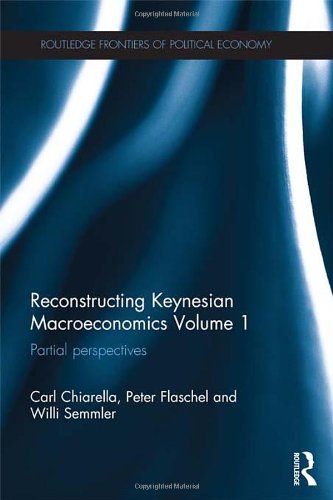

Most ebook files are in PDF format, so you can easily read them using various software such as Foxit Reader or directly on the Google Chrome browser.
Some ebook files are released by publishers in other formats such as .awz, .mobi, .epub, .fb2, etc. You may need to install specific software to read these formats on mobile/PC, such as Calibre.
Please read the tutorial at this link. https://ebooknice.com/page/post?id=faq
We offer FREE conversion to the popular formats you request; however, this may take some time. Therefore, right after payment, please email us, and we will try to provide the service as quickly as possible.
For some exceptional file formats or broken links (if any), please refrain from opening any disputes. Instead, email us first, and we will try to assist within a maximum of 6 hours.
EbookNice Team

Status:
Available4.3
36 reviewsThis book represents the first of three volumes offering a complete reinterpretation and restructuring of Keynesian macroeconomics and a detailed investigation of the disequilibrium adjustment processes characterizing the financial, the goods and the labour markets and their interaction. It questions in a radical way the evolution of Keynesian macroeconomics after World War II and focuses on the limitations of the traditional Keynesian approach until it fell apart in the early 1970s, as well as the inadequacy of the new consensus in macroeconomics that emerged from the Monetarist critique of Keynesianism.
Professors Chiarella, Flaschel and Semmler investigate basic methodological issues, the pitfalls of the Rational Expectations School, important feedback channels in the tradition of Tobin’s work, and theories of the wage-price spiral and the evidences for them. The book uses primarily partial approaches, the integration of which will be the subject of subsequent volumes. With its focus on Keynesian propagation mechanisms, the research in this book provides a unique alternative to the black-box shock-absorber approaches that dominate modern macroeconomics.
Reconstructing Keynesian Macroeconomics should be of interest to students and researchers who want to look at alternatives to the mainstream macrodynamics that emerged from the Monetarist critique of Keynesianism.